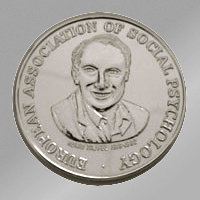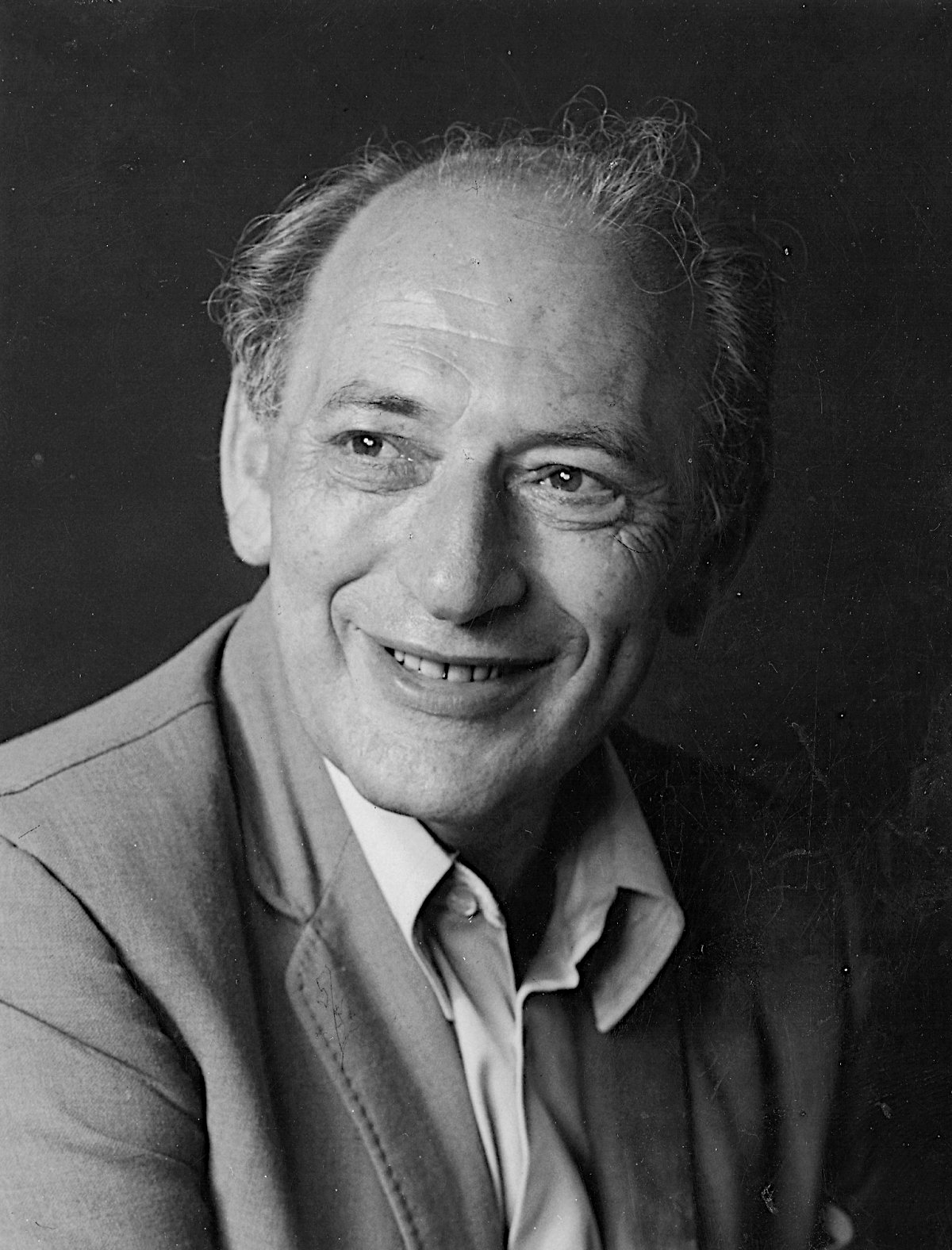Henri Tajfel Medal
Please see this announcement about the re-naming of this award.
Information about previous awards
To honour the late Henri Tajfel, the Henri Tajfel Lecture was founded by the Association in May 1982. The Henri Tajfel Award recognises a distinguished lifetime achievement contribution by a full member of the association. A full member of the EASP is selected by the Executive Committee in the Autumn prior to the General Meeting and gives a plenary lecture at the General Meeting. This address is normally published in a subsequent issue of the European Journal of Social Psychology. The Henri Tajfel Lecturer attends the General Meeting as a guest of the Association and receives a certificate and a silver medal, suitably mounted and inscribed. Although there is no open call for applications for this award, suggestions from EASP members are welcome and will be considered by the EC.
Past Tajfel Lecturers
The following lecutres were given at each EASP General Meeting.
- Granada (2017): Klaus Fiedler
Discovering Order in an Uncertain World: Anchoring a Tajfel Lecture in Henri Tajfel‘s Seminal Work - Amsterdam (2014): Rupert Brown
The dynamics of contact and acculturation - Stockholm (2011): Anne Maass
"The Spatial Agency Bias: When writing habits make the social world asymmetric - Opatija (2008): Tony Manstead
The Social Dimension of Emotion - Wuerzburg (2005): Wolfgang Stroebe
Why dieting fails: On the cognitive regulation of eating - San Sebastian (2002): Jacques-Philippe Leyens
Essentialism, emotional prejudice, and nationalism - Oxford (1999): John Turner
The prejudiced personality and social change: A self categorization perspective - Gmunden (1996): Jaap Rabbie
Is there a discontinuity or a reciprocity effect in cooperation and competition between individuals and groups? - Lisbon (1993): Amélie Mummendey
Positive distinctiveness and social discrimination: An old couple living in divorce - Budapest (1990): Serge Moscovici
New questions for social psychology in a new Europe - Varna (1987): Willem Doise
Individual and social identity in intergroup relations - Tilburg (1984): Gustav Jahoda
Nature, culture and social psychology
Henri Tajfel (1919–1982)
by Steven Reicher, University of St Andrews
Henri Tajfel, of Polish-Jewish parentage, was born in Wloclawek on 22 nd June 1919. At the outbreak of the second world war, he was studying chemistry at the Sorbonne. He was called up into the French army and, a year later was captured by the Germans. They never discovered that he was a Jew and so Tajfel survived the war in a series of Prisoner of War camps. However when he finally returned home he found that nearly all his friends and family were dead. These experiences shaped his subsequent career in three ways. First, he developed an abiding interest in prejudice; second, he recognised that his fate was tied entirely to his group identity; third, he understood that the Holocaust was not a product of psychology but of the way in which psychological processes operate within a given social and political context.
In the immediate aftermath of the war, Tajfel worked with a number of organisations, including the UN Refugee Organisation, to help rebuild the lives of orphans and concentration camp survivors. But from 1946 he started to study psychology and by 1954, now in the UK, he had graduated with a first class degree. His early work was part of the so-called 'new look' in social psychology and concerned processes of perceptual overestimation. While it may seem remote from his later intergroup research it was, however, concerned with the way in which social values frame cognitive processes - or rather how psychological functioning shapes and is shaped by large-scale social processes. His empirical work was accompanied by trenchant critiques of reductionism and, in a telling phrase, he expresses his outrage at the way in which psychologists develop simplified models while displaying a 'bland indifference to all that one knew about human society'.
In 1967, Tajfel took up his Chair in Social Psychology at Bristol University where he remained until his death in 1982. Shortly after arriving he conducted the famous 'minimal group experiments'. These studies, which were originally intended as a baseline from which one could determine the necessary and sufficient conditions for collective prejudice, showed that mere categorisation can produce inter-group differentiation. They led him, along with John Turner, to develop social identity theory (SIT) - often represented as the idea that we define ourselves in terms of category memberships and then, in order to achieve a positive self-definition, seek to advantage our ingroup over comparison outgroups.
However, there is an irony here. Tajfel, who more than anyone else insisted on the need to view psychological processes in context, often found the minimal group studies taken out of context and hence social identity theory interpreted in reductionist terms. For him SIT was not meant to explain social inequalities in psychological terms but to examine how psychological dynamics operate in and relate to ideological and structural realities. The process of differentiation was not an end point, but a starting point for his analysis. The fundamental question was, if people seek positive social identities, what do they do if they are defined negatively in an unequal social world: as Jews in an anti-semitic world, blacks in a racist world, women in a sexist world? When do they act collectively to challenge such inequalities? In other words, social identity theory is more a theory of social change than social discrimination and the concept of social identity is primarily intended as a mediating concept in the explanation of social change. This agenda is of fundamental importance and continues to shape research. But Tajfel's triumph was moral as well as intellectual. In the face of Nazi inhumanity, when it would have been all too easy to succumb to fatalism and despair, Tajfel retained his optimism in the ability of people to organise and overcome oppression.
This optimism in organisation was reflected in many ways - EASP being one of them. After 1945 European intellectual life in general, and social psychology in particular, was scattered and fragmented and weak. From 1962 onwards, Tajfel was part of a small group from both sides of the Atlantic who sought to form a community of European Social Psychologists. One can enumerate his various formal contributions: Tajfel was on the first committee of the European Association in 1966. He was its second president and, during his term, the European Journal of Social Psychology was formed. However none of this conveys Tajfel's true intellectual and practical contribution. As Jerome Bruner, amongst others, noted, he more than anyone else brought European Social Psychology into being. Moreover, he provided its distinctiveness and dynamism: a rejection of reductionism and a commitment to studying psychological processes in context; a concern with social inequality along with an intellectual and moral commitment to social change; an abiding interest in collective processes and collective action as the motor of change. It is for these reasons that Tajfel is remembered and honoured and that his legacy remains so important for our future.

